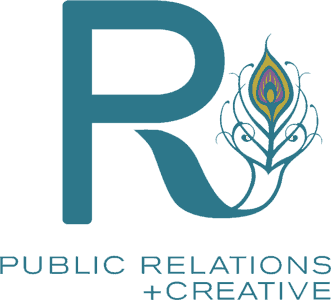Digital sources have become an important part of Americans’ news diets—with social media playing a crucial role, particularly for younger adults. Overall, just over half of U.S. adults—54 percent—say they at least sometimes get news from social media,” the Pew Research Center reported in 2024. The digital age allows internet users to stay more connected to one another as well as to timely trends, conflicts, celebrations and current events; however, it also offers the public a constant stream of information—often with bias—and allows those near and far to share opinions on it all. When it comes to strategic public relations, we must consider the impact internet trolls, influencers, celebrities and thought leaders have on public perceptions and reputations. The narratives that each of these influential voices promote ultimately shape and drive the opinions of society as a whole.
Modern media formats, particularly public-driven ones such as social media, allow publicists to leverage fans, critics and influencers to push particular narratives, ultimately utilizing the public as unknowing spokespeople. For example, PR practitioners often partner with influencers to promote brands by publishing strategically organic-feeling content on their platforms. This creates authentic interest, positive association and brand trust among the creator’s followers, which stem from strategically planned content and collaborations.
Consumers often take the online world at face value, accepting the published content as fact unless proven otherwise; however, publicists frequently help steer the trends, perspectives and narratives that the public claims and drives forward.
The “Wizard of Oz” approach
R founder Emily Reynolds Bergh often likens public relations to “The Wizard of Oz.” When Dorothy gets stranded in Oz, Ozians advise her to seek the aid of the all-powerful Wizard of Oz. Throughout her journey, she meets several new friends who join her trek in hopes of experiencing the favor and miraculous gifts of the Great Wizard. Once they arrive in the Emerald City, where the wizard resides, they find a gigantic, green, haunting face that leaves them feeling daunted but determined. That is until Toto pulls back the surrounding curtains to reveal an old, wholly ordinary magician peeking into a microphone and controlling the larger-than-life face with small levers.
To reach the status and mystique that he did, the wizard let the public push his narrative. Accepting what they saw or heard of the wizard as truth, Ozians began to spread the particular stories and interpretations of events the wizard set forth—hoping to shape their perceptions of him and influence their understanding of him and his “powers.”
While this story is from a beloved work of fiction, we experience these sentiments regularly in strategic public relations.

Strategic public relations in the Blake Lively and Justin Baldoni battle
One timely example of this is the Baldoni-Lively publicity saga. The “It Ends With Us” stars, Justin Baldoni and Blake Lively, were at the center of a months-long scandal. Baldoni stated that Lively was difficult to work with, while Lively filed a lawsuit alleging that Baldoni behaved inappropriately on set and drove a smear campaign against her after she complained.
Painting himself as a prominent male feminist at the height of the #MeToo movement, Baldoni was the poster child of what it looked like to be an ally for women, and this directly impacted his ability to spin his conflict with Lively.
“This gave him somewhat of a leg to stand on and the ability for him and his team to potentially plant a seed of doubt in the minds of the public, which could undermine Blake Lively’s claims and her image in going against him,” said Bergh. “Especially with this playing out on social media platforms like TikTok, where consumer commentary is fast and furious, reputations can soar or plummet in the court of public opinion at an alarming rate.”

Triumphs and pitfalls of public-driven campaigns
Strategic public relations campaigns that rely on the advocacy and attention of the general public can have some cons and be used to harm, such as this one. Still, they can bring crucial attention to your narrative and produce many positive opportunities.
The drawbacks of investing in a campaign that relies on public buzz include the risk of a narrative falling out of your control, the possibility of a backfire and the presence of ethical unease that points to manipulation.
Bergh notably points out that PR practitioners must now manage press, media and public relations. With that, publicists who utilize a more flexible approach to ethics may engage in transactional tactics such as funding bots, boosting posts or paying spokespeople to share particular opinions.
“It’s a slippery slope as far as reputation campaigns go, and we’ve seen some get pretty dirty,” said Bergh. “But luckily, the public is becoming more suspicious when they come across these types of tactics; they’re more savvy than ever.”
Conversely, strategic public relations can benefit from thoughtful, public-driven projects, often producing an amplified feeling of authenticity and ownership, expanding reach and encouraging meaningful engagement.

As publicists manage more extensive and nuanced relations, leveraging public attention can be a powerful tool and impactful campaign extension that helps organizations and individuals garner necessary attention and publicists execute successful campaigns. While social media sites like TikTok can be volatile, they can also be supportive and uplifting, with users looking to chime in and join the conversation. Ultimately, this environment provides all the ingredients necessary to mold public perceptions and encourage consumer-driven discourse.
Spin is all around us
As Bergh so wisely explains, we all spin each other, and we do it all the time. Whether you’re a celebrity, thought leader, business owner, influencer or industry professional, effectively steering and propelling public opinion forward can help shape perceptions and accomplish meaningful campaigns—when done authentically and ethically.
For expert help with strategic public relations for your brand, contact RPR today to schedule a discovery call.
